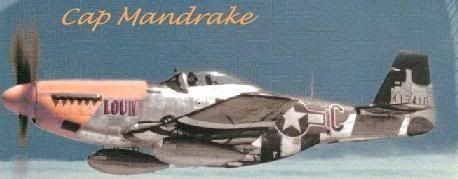It was Germany by far. Although the Japanese had a skilled Navy, American material might would overwhelm them sooner or later, and as their economy collapsed and the quality of her air arm deteriorated, then she was finished. She didn't have the shipping to supply her defensive perimeter and with or without Midway, it was only a matter of time before the sheer number of Essex Class Carriers being produced overwhelmed her.
Germany presented a number of bigger problems. She was a land power and the quality of her ground forces was without peer for most of the war. America only put 89 divisions into the field, so would never have been able to overwhelm her without a far greater effort which would have taken longer to assemble.
Even had the extra troops been assembled, a Wehrmacht not burdened with the war in the east would have repulsed it.
It's right to say the US didn't defeat Germany, merely create the right circumstances in which Western Europe could be liberated by the Democratic powers rather than the Red Army.
Lots of interesting points, here, though.
Also by overrunning the Dutch Indies, Burma, Indo China, etc, Japan had all the natural resources she needed to wage war with the US.
Yes, but not the shipping to keep the bases supplied, the troops rotating and the raw materials flowing. Certainly not when the Submarine offensive began to take its toll. Japan retained much of these resources until 1944, but never got enough of them back to keep production on a high.
Neither one was a danger. Somewhere in 60 years they have glamorized the war into some sort of struggle. The United States once she entered the war was an unstopabble juggernaught. She only had to wish to do something and the axis powers feebly resisted but couldnt stop it. We so completly crushed all three of the major axis nations. Amphibious landings before the war were considered extremly risky. The United States conducted dozens of these and never failed in a single attempt.
Yes, but there are scenarios in which it is difficult to win against Germany. The bombing offensives weren't clever enough, and in the form they took would not have won the war. Again a Wehrmacht not bogged down in the east would have stopped the Allied invasion. Tarawa and Omaha show what can happen against even moderate opposition. So, whilst the US helped pioneer the amphibious attack, there are limits to what it would have been able to achieve. It succeeded in Normandy, because the Allies won the battle of the Build up.
There were many Germal generals that wanted peace with Britain and America to concentrate on Russia because they saw a chance to defeat Russia.
Again, I dont want to say you're wrong, but concentrating on D-Day alone is just too simple.
Once the initial campaign had (understandably failed) the Germans were lost in the east. I can see scenarios in which they can win a bloody stalemate, but these disappear after Kursk. Blitzkrieg (whatever that meant) was over by 1941, so even on the offensive, they were no longer inflicting offensive losses on the scale of 1941. This would have made it difficult for them against the Soviets and a draw, constantly blunting and destroying breakthroughs was the best they could have achieved, as they still had a degree of operational and tactical advantage.
If Hitler had been cautious he would have focused all his attention on Britian, before launching Barbarrossa. The Germans would have been able to drive the British out of North Africa, then sieze the oilfields of the Middle East. It might take two years or more to prepare the way for Sealion. Without help Britain could not stand forever. Then the Germans could launch Barbarrossa. Probably the Soviet forces would be a little stronger at this later time than they were at the historic beginning of Barbarossa, but it wouldn't matter. The Germans would be a lot stronger with better technology, secure oil supplies, a larger industrial base, and a single front. It might also have been possible to attack USSR from the south, which would make an excellent diversion if not a knockout. Russia would not have been able to win in this scenario
Britian was outproducing Germany in Fighter aircraft in 1940, and it would have taken Germany more than two years to build the necessary Naval vessels to threaten Britain. I see no scenario in which Sealion was ever feasible. The entire Wehrmacht could have been allotted to the task but Germany had neither the shipping to get it across the channel, the Navy to escort it, nor the planes to guarantee air supremacy.
Hitler turned his attention to the Soviet Union because he understood Britain would never be an offensive threat on it's own, but he could not knock it out of the war with direct action. Only the hopelessly under-resourced u-boat arm offered any hope.
If the Axis made it a priority, they could eventually build a fleet capable of invading the US given a decade or so
I don't think this was ever possible. The idea a fleet along could launch and then re-supply an invasion across the Atlantic is a step too far. It was never a possibility.
The Allied industrial capacity was six times the Axis powers' industrial capacity. America fought a rich man's war. Without American material support (lend and lease etc) the Soviet Union would have collapsed in '42 at the latest.
I suspect it was more than six in many areas, but I'm not sure the Soviet Union would have collapsed. It stopped the Germans all on it's own and if it was American trucks that carried Soviet infantry in the great offensives later in the war, these trucks were not instrumental in building the initial stalemate. Russian blood did that.
Great thread.
Regards,
IronDuke








